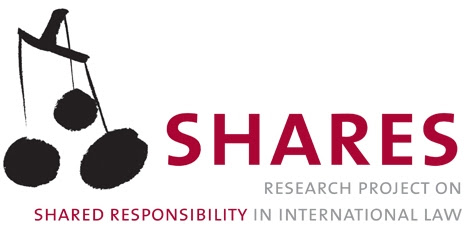Posted by: Heijer Maarten den
The European Court of Human Rights declared inadmissible a complaint brought against Italy and the Netherlands of an asylum seeker whose transfer to Italy was ordered by the Dutch authorities pursuant to the EU Dublin Regulation (Mohammed Hussein a.o. v the Netherlands and Italy). The Court’s rigorous scrutiny of the treatment of asylum seekers in Italy suggests that it aimed to set a standard for similar cases.
After the European Court had declared the intra-EU transfer of an asylum seeker to Greece in violation of the European Convention on Human Rights in January 2011 (the case of M.S.S., see also here), litigation in several Member States shifted to other allegedly unsafe countries for asylum seekers, in particular Italy. Some NGOs highlighted failures in the Italian protection system and advised to refrain from deporting asylum seekers to Italy (see here and here). Information of the Court shows that in 2012, the European Court accepted seven requests for interim measures to the effect of suspending expulsions from the Netherlands to Italy. Presumably, these are all Dublin transfers. The Court also refused 22 of such requests however. The cases in which it did order an interim measure concerned particularly vulnerable asylum seekers, such as minors and mothers with young children. It appears that this is the first case in which the Court substantially deals with a Dublin transfer to Italy.
The complaint was brought by a mother from Somalia with two young children. She arrived by boat from Libya in Italy in 2008 where she stayed for eight months before travelling onwards to the Netherlands (because, so she told the Dutch immigration authorities, she had heard that it was safe there and ‘the people nice’). Her two children were both born during her stay in the Netherlands. After her transfer to Italy was ordered and national remedies exhausted, she applied to the European Court, which issued an interim measure suspending her transfer.
Because Italian reception conditions have been debated for some time now, the Court could rely on much material. It considers on the basis of the reports and the relevant Italian law that the situation in Italy differs considerably from that in Greece. Despite some shortcomings, there is no systemic failure to provide support to asylum seekers or persons with refugee status. The Court finds this corroborated by the story of the mother. After having arrived in Italy, she was placed in a reception facility where her asylum application was processed and indeed granted after five months. She was also provided with medical care once it became known that she was pregnant. Her previous stay in Italy did therefore not attain the minimum level of severity required for treatment to fall within the scope of Article 3 of the European Convention. The Court further concludes that there are no indications that the applicant will not be able to invoke the assistance of the Italian authorities once she returns there with her children.
Because the complaint is declared manifestly ill-founded, the decision seems to bring an end to the debate whether Dublin transfers to Italy are possible. It might be recalled however, that the European Court had also displayed initial restraint in cases concerning Dublin-transfers to Greece (see K.R.S. v the United Kingdom). It was only after a complaint had been brought by an asylum seeker who had actually been transferred to Greece and had not been provided with any assistance whatsoever (as was the case in M.S.S.), that the Court was forced to change its position. It does seem that the chances that that will happen in Italy are much smaller however.
